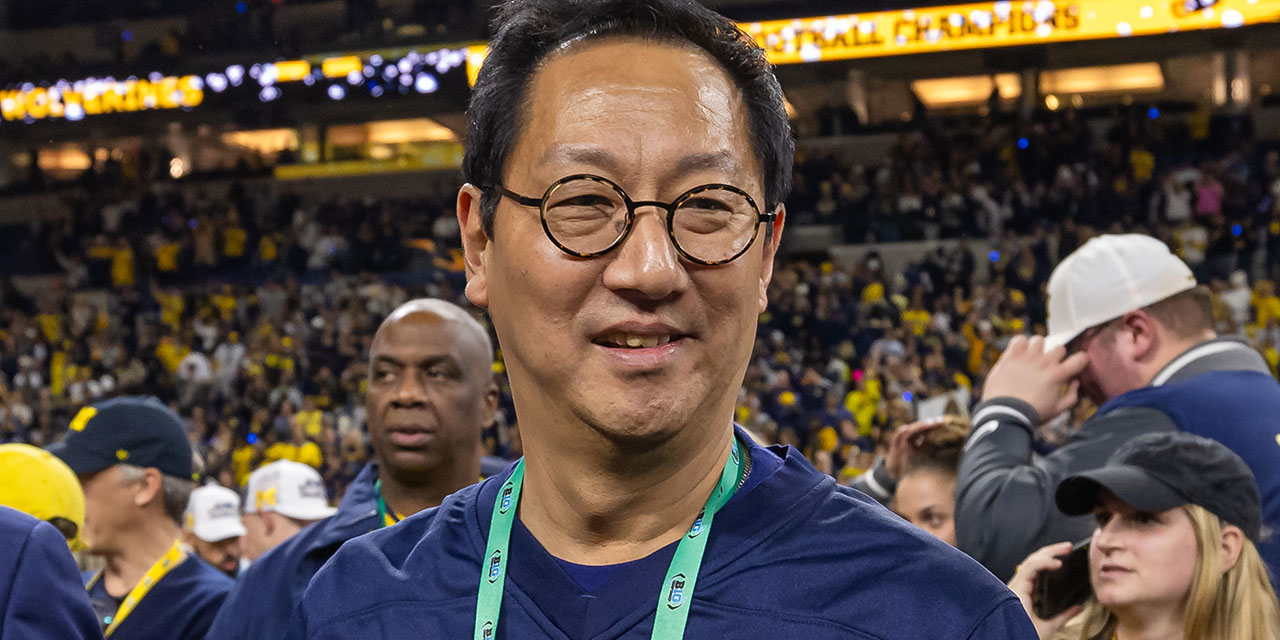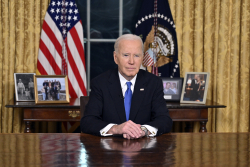
The appointment of a university president rarely makes national news. But the Sunday announcement that Santa Ono will leave his post as president of the University of Michigan to lead the University of Florida deserves attention—not just for what it says about these two institutions, but for what it reveals about the emerging ideological realignment in American higher education.
In less than three years at the helm in Ann Arbor, Ono quietly became one of the most consequential university presidents in the country. Sensing the changing cultural winds, he began steering one of America’s most prestigious public universities back toward sanity.
Finally, a reason to check your email.
Sign up for our free newsletter today.
He abolished a sprawling, unconstitutional DEI bureaucracy. He defunded and suspended a student organization that had engaged in anti-Semitic intimidation and civil terrorism. He defended free speech in an increasingly censorious academic environment. And he helped shepherd Michigan athletics into the name, image, and likeness reform era, culminating in a national football championship that brought pride and unity to a campus often consumed by political turmoil.
For these efforts, he was booed at Saturday’s commencement ceremony—the reaction of a campus activist class furious that a university president dared to champion institutional integrity over ideological appeasement.
This reaction illustrates the core dilemma facing reform-minded leaders in elite academia. Even modest steps to restore legal and intellectual norms now spark open rebellion from leftist faculty and students who see the university not as a place for truth-seeking or public service, but as a vehicle for political revolution. Many presidents have chosen appeasement to preserve their positions. Ono made a change—and that may be why he is now moving on.
Nonetheless, Ono’s new destination is revealing. The University of Florida, despite the recent resignation of former president Ben Sasse, remains the most serious challenger to the ideological monopoly long maintained by America’s elite public universities.
Florida’s transformation has outlasted any one leader. Under Governor Ron DeSantis, the state has aggressively overhauled its higher education system, cutting DEI bureaucracies, anchoring general education around the Western canon, and establishing new academic centers committed to free inquiry. Under the guidance of Will Inboden, UF’s Alexander Hamilton Center, in particular, has quickly become a national model for restoring academic seriousness and civic education, backed by real resources and political will. Florida’s leadership understands what so many legacy institutions have forgotten: that public universities must answer to the public, not to insular activist cliques.
A decade ago, it would have been unthinkable for a University of Michigan president to view Florida as a step up. Today, it makes perfect sense. The balance of moral and intellectual seriousness in American higher education is shifting southward.
Ono’s move says as much about the shifting incentives in higher ed as it does about Ono himself. After all, he was president when Michigan rolled out its DEI 2.0 plan—arguably the most aggressive diversity initiative in the country. He either helped shape it or signed off on it. That he has now rebranded so effectively—and been embraced by Florida’s generally reform-oriented board—speaks volumes. A successful progressive administrator now sees the free-expression, anti-DEI lane as a viable, even strategic, path for career advancement.
Ono’s move isn’t a retreat but a reinforcement. He’s joining a state that is investing in its universities not to win approval on the faculty lounge circuit but to make them more responsive to the needs of a democratic society. At UF, he’ll find political leaders willing to stand by him when he makes tough calls. He’ll be rewarded for promoting excellence and order—not punished for resisting chaos.
His departure should alarm Michigan alumni and donors who believed the university had finally found a president capable of reversing its long decline into bureaucratic bloat and ideological monoculture. If the university wants to build on Ono’s gains, it should look to leaders in the mold of Vanderbilt’s Daniel Diermeier or Washington University’s Andrew Martin—principled proponents of institutional neutrality who have rejected creeping politicization in favor of academic excellence, free expression, and civic seriousness. (Martin, notably, once served as dean of Michigan’s College of Literature, Science, and the Arts.)
Ono’s record at Michigan was far from perfect. But in a brief and turbulent tenure, he demonstrated rare courage and moral clarity. He tried to lead a great university—not manage a factional movement. That alone sets him apart in today’s academic landscape.
Michigan’s loss is Florida’s gain. More importantly, it’s a gain for the country that the prestige these institutions once took for granted is now up for grabs. Those willing to reform will seize it.
Photo by Michael Hickey/Getty Images
City Journal is a publication of the Manhattan Institute for Policy Research (MI), a leading free-market think tank. Are you interested in supporting the magazine? As a 501(c)(3) nonprofit, donations in support of MI and City Journal are fully tax-deductible as provided by law (EIN #13-2912529).
Source link
















